Poonch, Jammu and Kashmir — 10 May 2025 : When Qari Mohammad Iqbal was killed on May 7 during a deadly episode of cross-border shelling near the Line of Control (LoC), Indian national media quickly framed his death as a counterterrorism success. But days later, a very different story has begun to emerge—one that raises serious questions about media ethics, official silence, and the impact of misinformation on grieving families.
Iqbal, a 42-year-old Islamic scholar and teacher at Jamia Zia-ul-Uloom in the Poonch district of Jammu and Kashmir, was described in mainstream television reports as a “most-wanted terrorist” and a “top Lashkar-e-Taiba commander.” His alleged death was linked to Operation Sindoor, a series of military strikes by India targeting militant hideouts in Pakistan and Pakistan-administered Kashmir. The operation followed the massacre of 26 civilians in Pahalgam, an act Indian officials have attributed to militants affiliated with the Pakistan-based group Lashkar-e-Taiba.
On the night of May 6–7, airstrikes were reportedly conducted across nine locations. Indian television channels, including Republic TV, CNN-News18, Zee News, and ABP, claimed Iqbal was killed in one such strike in Kotli, Pakistan-administered territory. Republic aired a blurred image of a deceased man, identifying him as Iqbal and attributing to him involvement in the 2019 Pulwama attack.
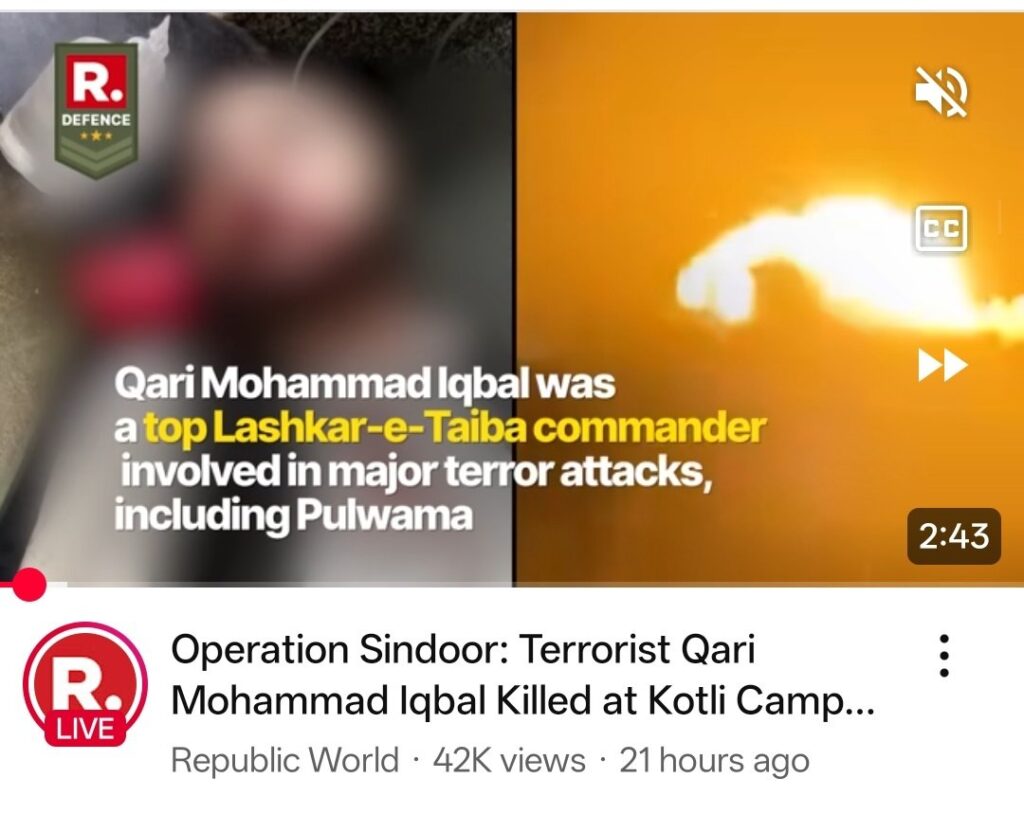
Photo: False news published by Indian Media
However, a fact-check conducted by Alt News and corroborated by statements from the local police and Iqbal’s family members paints a radically different picture.
A Teacher Caught in the Crossfire
According to Poonch district police, Iqbal was not in Pakistan or associated with any terror network. He was at his home in Poonch, Jammu and Kashmir—a region that came under intense mortar shelling from the Pakistani side during retaliatory fire after India’s strikes.
“The deceased, Maulana Mohammad Iqbal, was a respected religious figure in the local community and had no affiliation with any terror outfit,” a police statement read.
His family is still reeling not only from the loss, but from what they describe as a character assassination. “We are Indians, and we love our country. But my brother-in-law was wrongly portrayed as a terrorist,” said Ishaq Khayan, a relative of the deceased. “He was a scholar, a man of peace, killed in the firing. And then the media made a martyr into a militant. It was traumatizing.”
A condolence post by local resident Sayeed Ahmed Habib on Facebook was among the first to challenge the media narrative. “Our dear Maulana Qari Mohammad Iqbal Sahib, a teacher… fell victim to the recent border tensions,” it read.
In a video shared by the school where Iqbal worked, Habib accused media channels of spreading “fabricated lies” and warned of legal action unless public apologies were issued. As of this writing, no retractions or corrections have been published by any of the channels that initially ran the story.
Misinformation and the Human Cost
The incident has reignited concerns about the lack of verification in Indian broadcast journalism, especially during moments of national crisis. Media scholars have long criticized the rise of what some call “hyper-nationalist” reporting—coverage that often relies on anonymous sources, unverified claims, and inflammatory language.
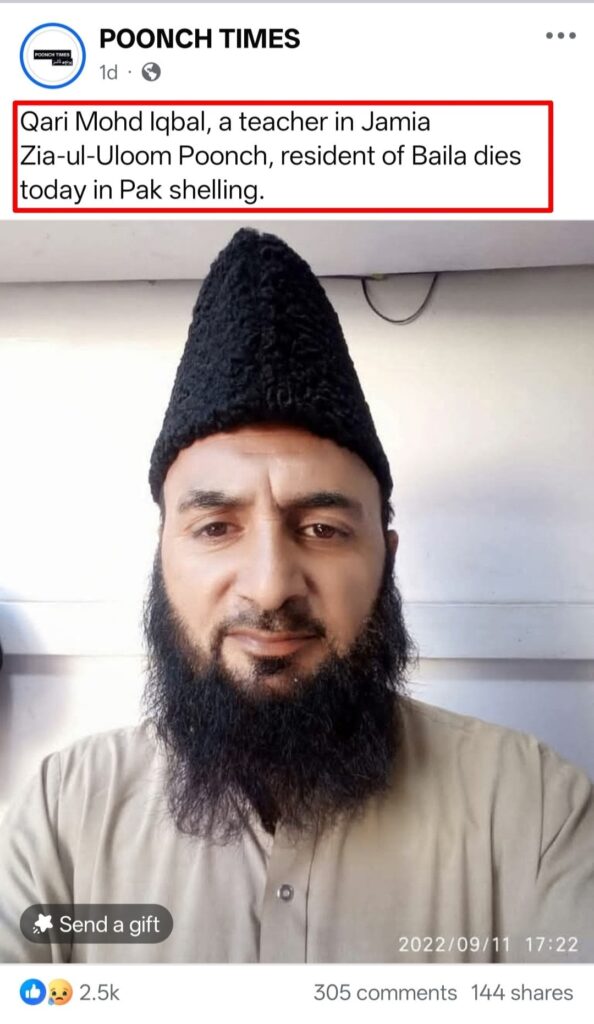
“This is not just a factual error; this is a moral failure,” said a senior editor at an independent news platform, requesting anonymity due to professional risks. “A man was killed in conflict. Instead of honoring his humanity, some outlets used his death to score political points.”
Iqbal’s younger brother, Qari Mohammad Farookh, appeared in a video flanked by grieving family members. “We were already wounded by his loss. Now this. The media is claiming he was a Pakistani terrorist. We appeal to authorities to take strict action against this.”
Silence from the Top
Despite growing evidence that Iqbal was misidentified, there has been no public comment from India’s Ministry of Defence or Ministry of Information and Broadcasting. Neither has any of the prominent news channels corrected their original reporting.
Journalists and civil society groups have begun calling for stronger mechanisms to hold media organizations accountable for misinformation, especially in conflict zones where the stakes are often life and death.
As the region remains tense and politically charged, the family of Qari Mohammad Iqbal is left with an additional burden beyond mourning—clearing the name of a man they say stood for faith, education, and peace.
“He wasn’t in any terror camp. He was in his room. And he died there,” said Khayan. “What happened after that was not just false. It was unjust.”
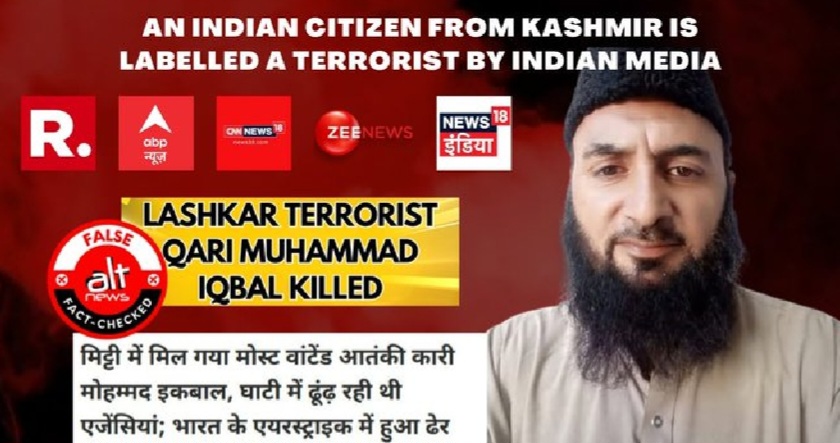

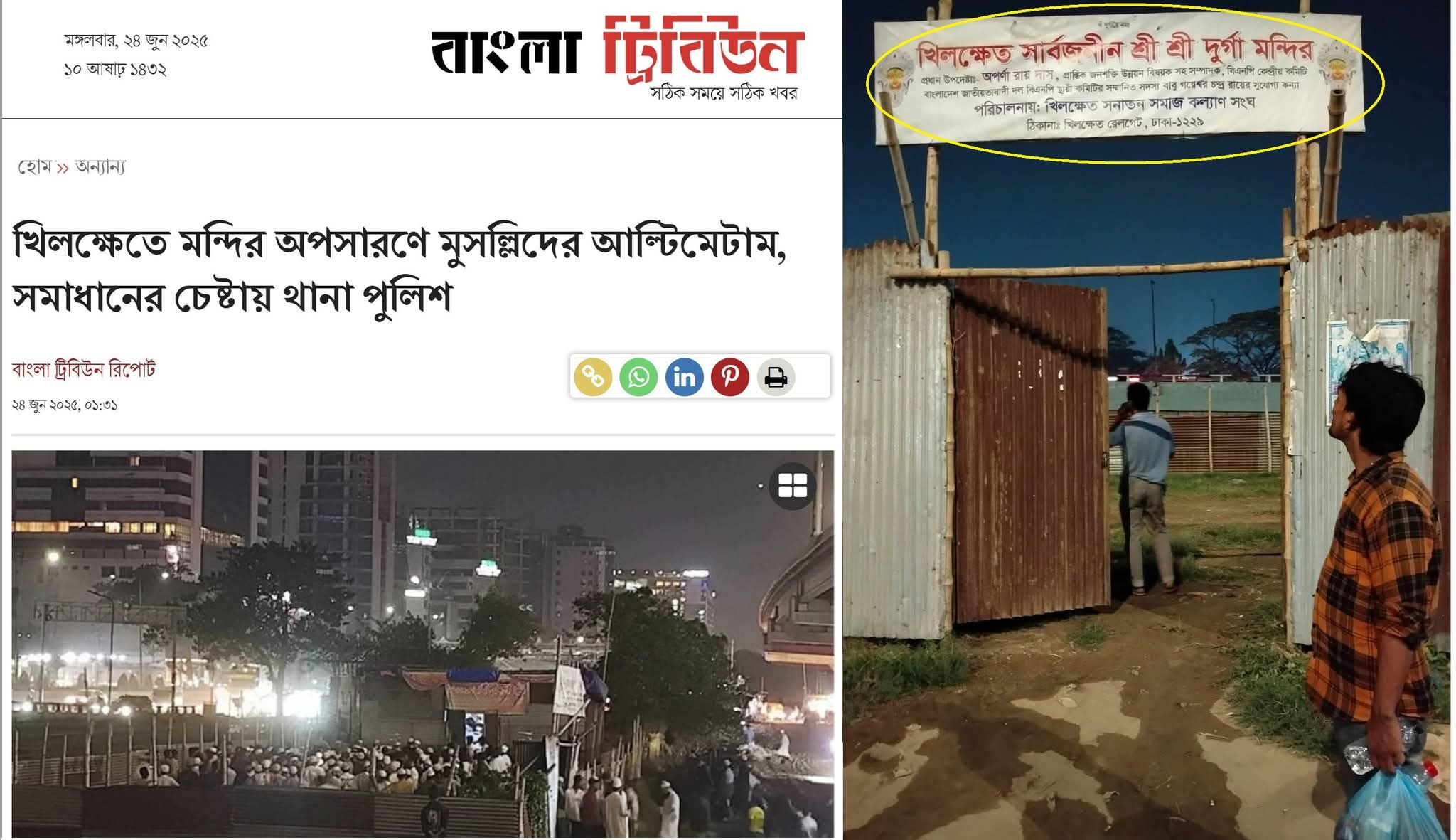
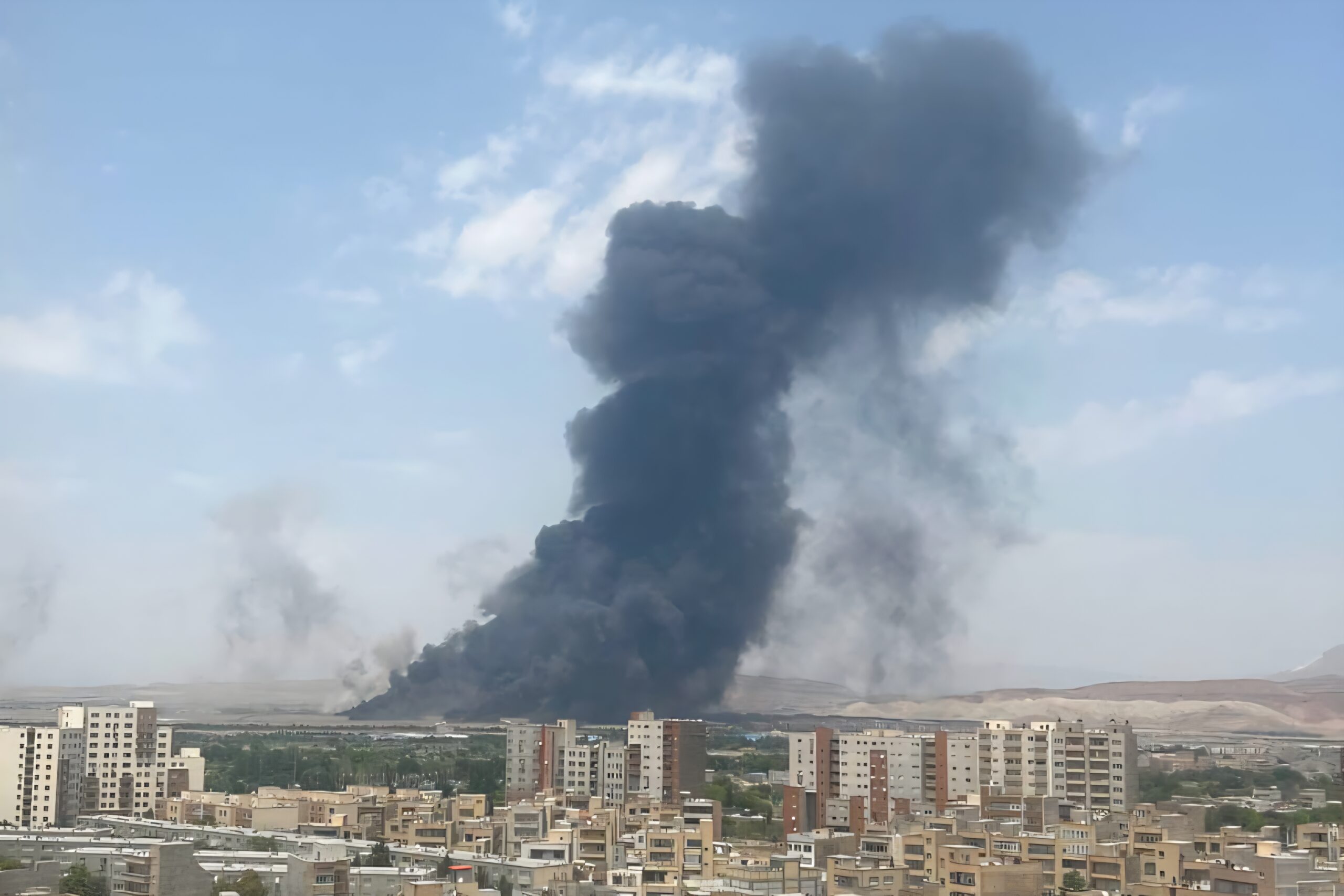
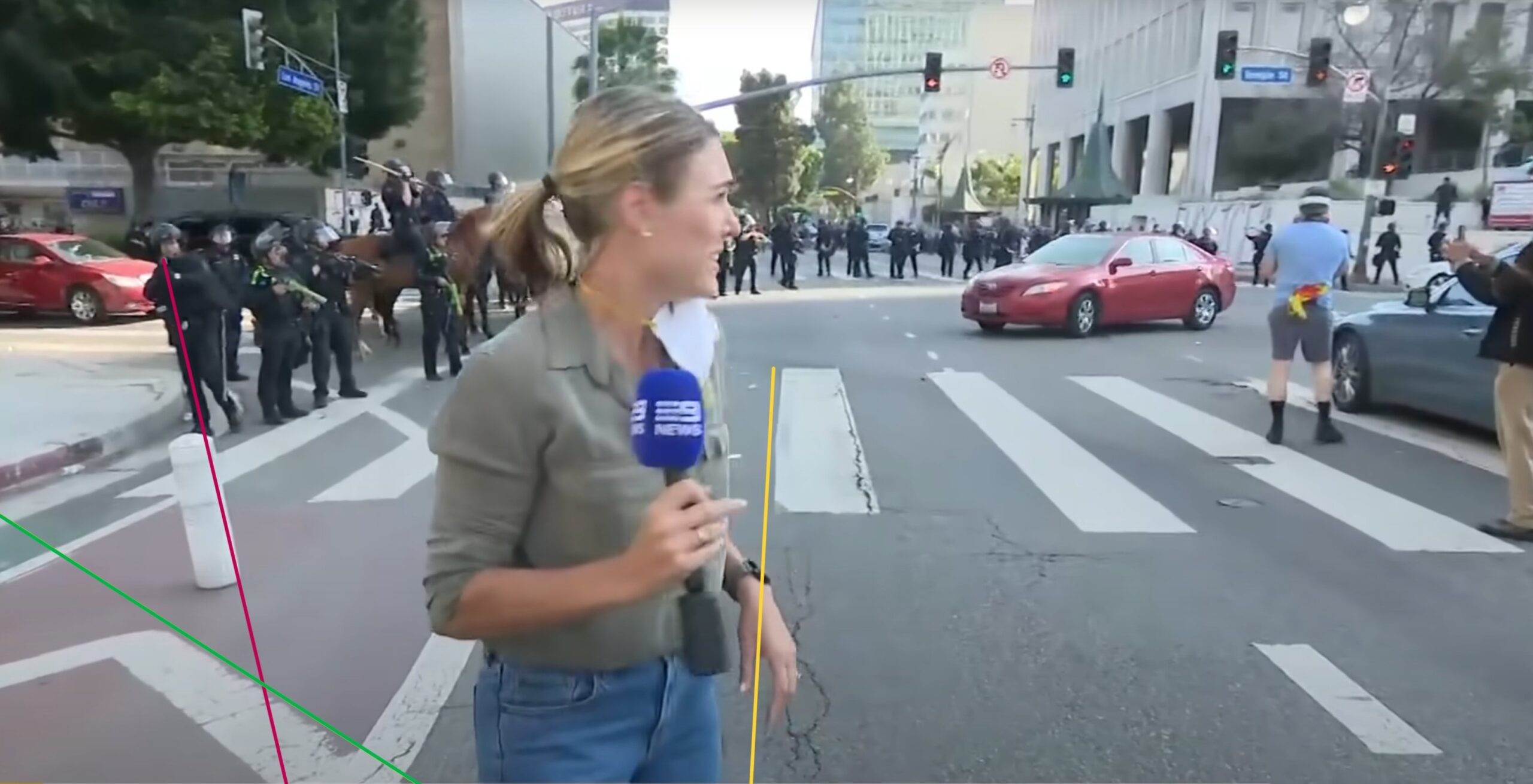
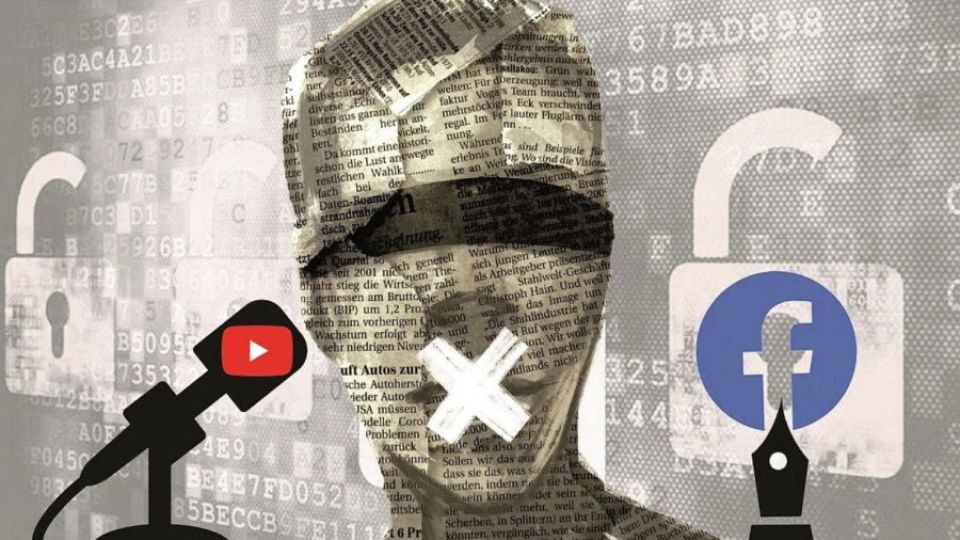
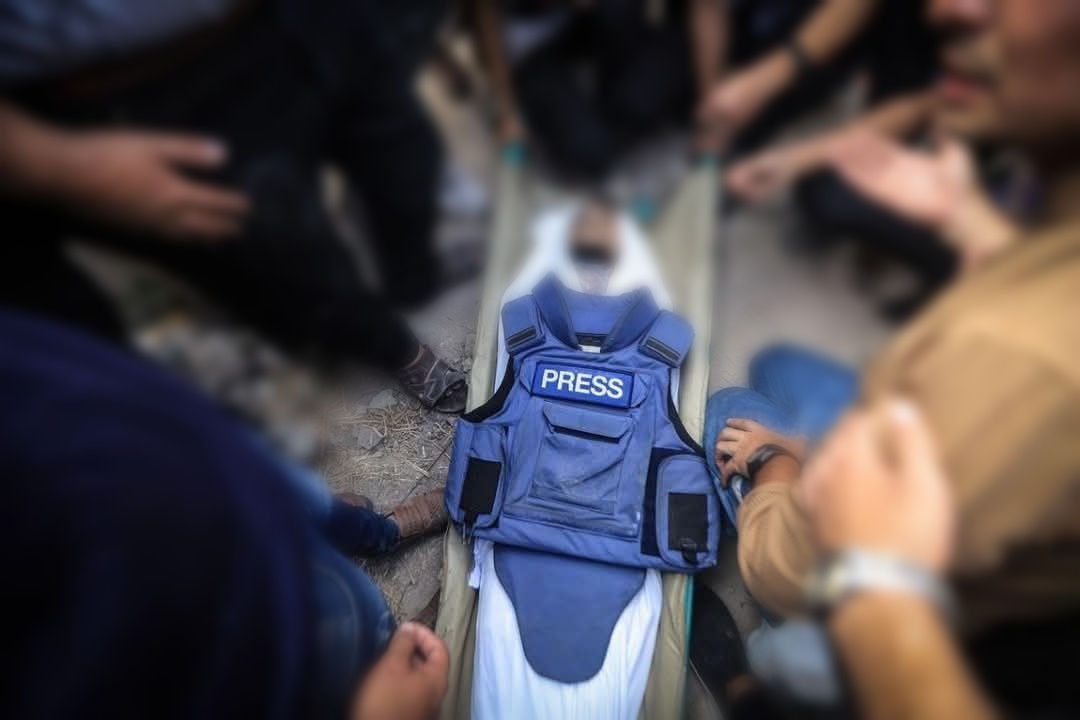
Leave a Reply